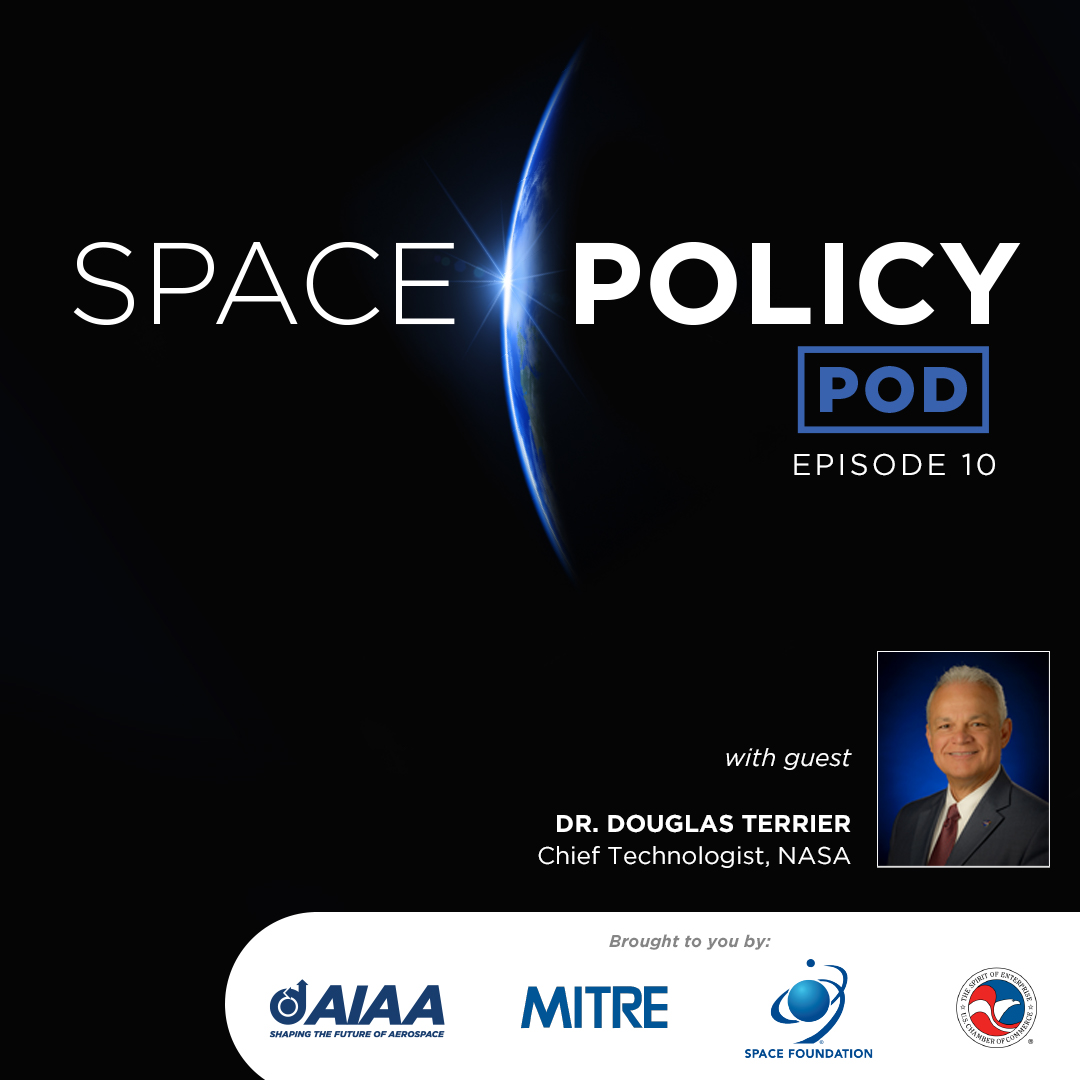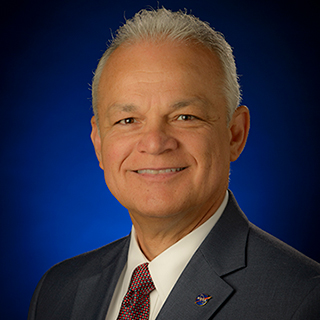Space Policy
Space Policy Pod – Episode 10: (Dr. Douglas Terrier, NASA)
Written by: Space Foundation Editorial Team

This podcast discussion features Dr. Douglas Terrier, NASA’s chief technologist. In this role, Dr. Terrier serves as the agency’s principal advisor and advocate on technology policy and programs, helping plot the strategic direction of the agency’s space technology program.
Prior to his current position, Dr. Terrier was the chief technologist of NASA’s Johnson Space Center. He also was the deputy director of NASA Johnson’s Strategic Opportunity and Partnership Development Office. Dr. Terrier worked in the commercial aerospace sector for a total of 23 years with Lockheed Martin, General Dynamics and General Electric Aircraft Engines.
Dr. Terrier earned a Ph.D. in aerospace engineering and a M.S. in Mechanical Engineering from the University of Texas.
 Episode 10 Dr. Douglas Terrier
Episode 10 Dr. Douglas Terrier
9 September 2020
Chief Technologist, NASA
Key Takeaways
The future of aerospace research and development
Dr. Terrier describes his long-term vision for the space industry and investment trends in aerospace research and development between government, private industry and academia. The agency is fostering and cultivating new relationships with private industry given the private sector’s unique position to bring in financial capital and a new way of doing business. Dr. Terrier also discusses how the agency has enabled commercial partners to innovate by shifting to a goal-oriented approach.
Interagency cooperation
Dr. Terrier discusses the great amount of interagency cooperation happening involving the Space Force, National Reconnaissance Office (NRO), the NASA Administrator, the Air Force, and others to identify how technology developments at NASA can meet national security needs for other departments. Dr. Terrier also discusses the progress made to coordinate On-orbit Servicing Assembly & Manufacturing (OSAM) strategy across the whole of government.
Economic impacts of technology development
NASA technologies significantly benefit the economy and other industries. These returns include technology transfer programs, remote-sensing applications in agriculture, hurricane management, search and rescue, and resource management.
Investments in emerging and matured technologies
Dr. Terrier discusses the role of his office in setting policy and performing strategic technology assessments with enabling, enhancing and transforming technologies for space exploration missions. Dr. Terrier also explains the coordination across NASA’s mission directorates to integrate and infuse earlier technologies to enhance missions.
Challenges of emerging technologies
Dr. Terrier emphasizes some key issues with artificial intelligence and machine learning playing an increasingly large role in space operations such as automation in launch and flight safety systems. Operating in a shared environment with other nations creates opportunities for disrupting communications, which the agency is working to prevent.
